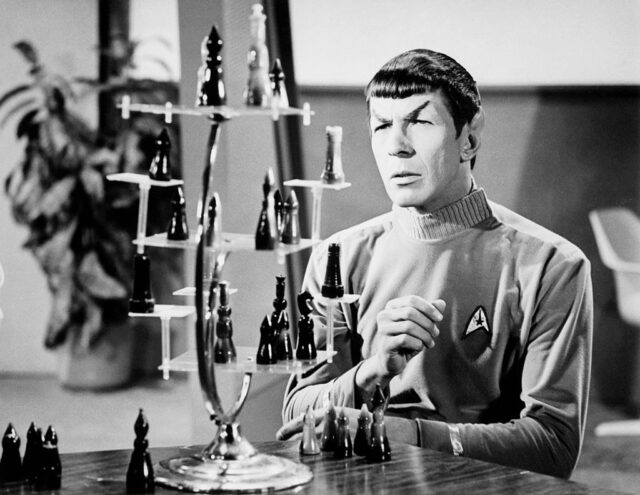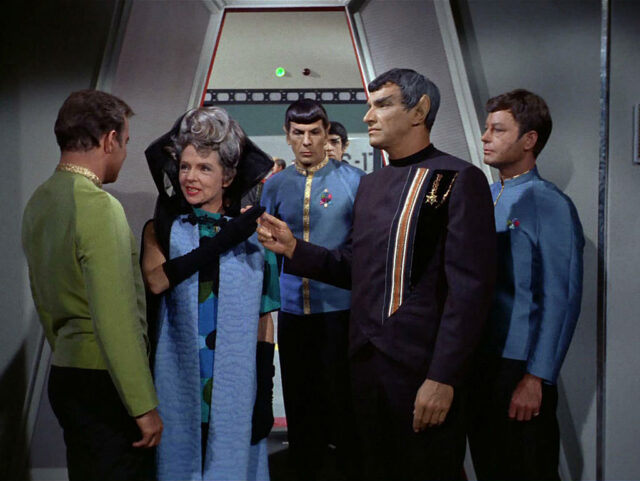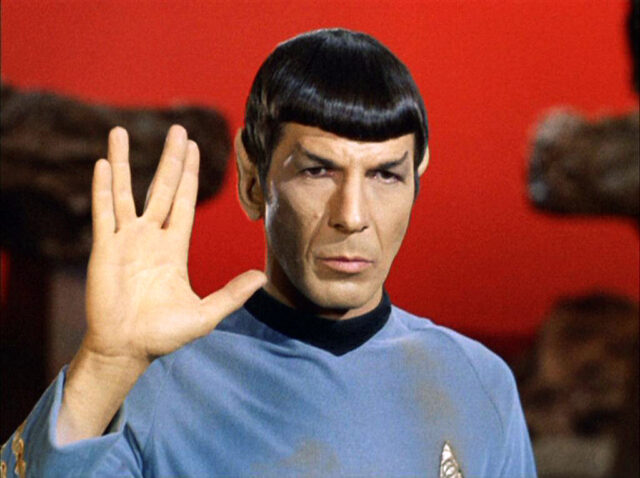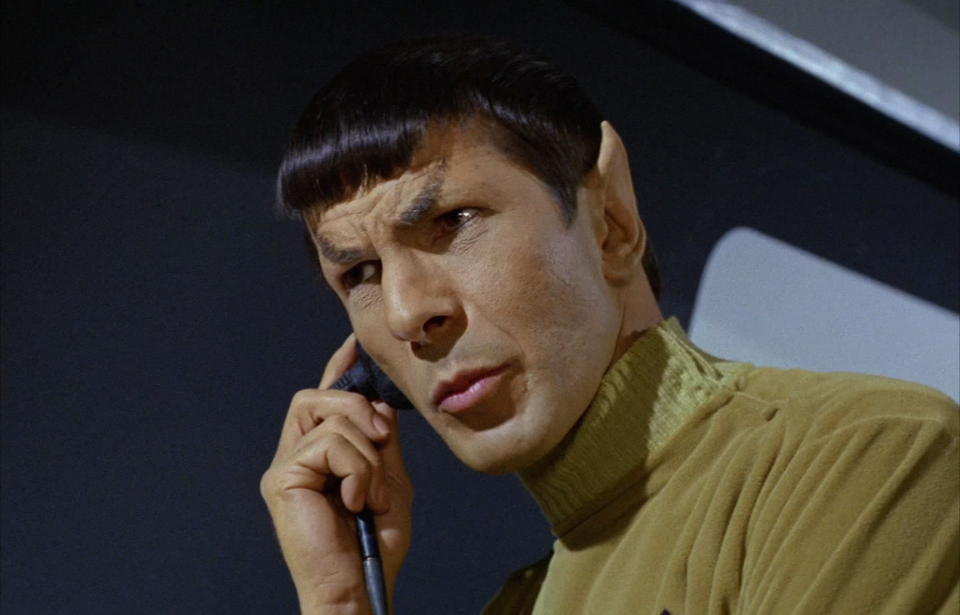There are many memorable characters who emerged from the Star Trek series, but one of the most enduring figures is Mr. Spock. Portrayed by the late Leonard Nimoy, Spock first appeared in the original Star Trek series and sparked what The Boston Globe in 1967 described as “Spockmania.”
Serving aboard the Starship Enterprise, Mr. Spock was the favorite science officer and first officer for generations to come. A human/Vulcan mixed species from Star Trek mythology, Spock was one of the central characters of the original series along with Captain James T. Kirk and Dr. Leonard “Bones” McCoy.
From the beginning of the TV show, the public reacted positively to Spock, in some cases even fanatically. Headshots of Spock became much-appraised souvenirs, and the rare ones of the actor laughing were the most valuable (It’s highly illogical for Vulcans not to appear serious).
Allegedly, within just two weeks after the airing of the second-season premiere episode entitled “Amok Time” in September 1967, Nimoy’s mail jumped from a few hundred letters to an astounding 10,000 a week.
Rushed by fans
On another occasion, Nimoy appeared as Spock at a parade in Oregon, and thousands of fans rushed toward him to receive autographs. Nimoy recalled later: “They surged forward so quickly that I was terrified someone would be crushed to death, and then they started pressing against the bandstand so hard it began to sway beneath my feet!” Nimoy needed to be rescued by the police and as he asserted: “I made sure never to appear publicly again in Vulcan guise.”

In those days, as a new and unique character, Nimoy often received intriguing questions from fans. People behaved as if he really was the brilliant Vulcan scientist, even posing questions about the Vietnam War or LSD. One fan, reportedly a biracial girl, wrote him to seek advice on how to deal with issues that concerned her being “a half-breed.” Nimoy would provide an answer as if he was Spock, explaining that young Vulcans had also treated Spock in comparable ways because he was different.
Nimoy deemed that the character of Spock was indeed appealing to viewers, and especially younger ones, because: “Spock understands the trauma of human existence, for he is not home with earthman or Vulcan; he can function only in the fabricated and neatly ordered society of the Enterprise. There, he knows who he is; he relates to his role very specifically, and this gives him a kind of cool.”
A surprise sex symbol
On the other hand, little did Leonard expect that Spock would also become a sort of sex symbol. Nimoy reported: “I’ve never had more female attention on a set before. And get this: they all want to touch the ears!” On one occasion, a young woman had even asked him: “Are you aware that you are the source of erotic dream material for thousands and thousands of ladies around the world?” Reportedly, he answered: “May all your dreams come true.”

The actor further speculated on why Spock appealed to women: “Down comes a stranger – tall, dark, thoughtful, alien and exotic. Somewhat devilish in appearance. He has a brilliant mind, the wisdom of a patriarch and is oh, so cool. With one raised eyebrow, he suggests he is above game-playing and role-playing – which are just hangovers from Earth’s Victorian Age – that he and he alone understand the deepest needs and longings of the Earth female.”
The character of Mr. Spock inspired many young and promising scientists and engineers as well. Spock was an informal mascot of NASA, and the actor was invited to notable events such as the National Space Club dinner in 1967, where Nimoy was warmly greeted by notable figures like astronaut John Glenn.
A long-lasting phenomenon
Though Spockmania had its heyday in the late 1960s, it did not evaporate immediately. Nimoy would recall that the phenomena lingered on even after a decade of the show’s cancellation, commenting: “It was incredible, and it still is, although it is gentler now than it used to be. For a time, it was hysterical – it was so wild I had to be very careful where I went.” In 2004, Spock placed 21st on Bravo’s list of Top 100 Greatest TV Characters.

Mr. Spock, as played by Nimoy, re-appeared in the 2009 film Star Trek, in which a younger version of the character was also played by Zachary Quinto. Both reprised their roles in the 2013 sequel Star Trek Into Darkness, and Quinto further returned as Spock in 2016’s Star Trek Beyond.
More from us: Live Long and Prosper: 10 Life Lessons People Learned From ‘Star Trek’
Sadly, Leonard Nimoy passed away on February 27, 2015, but his performance as Mr. Spock lives on. It remains one of the most memorable characters to have ever appeared in the film industry.
